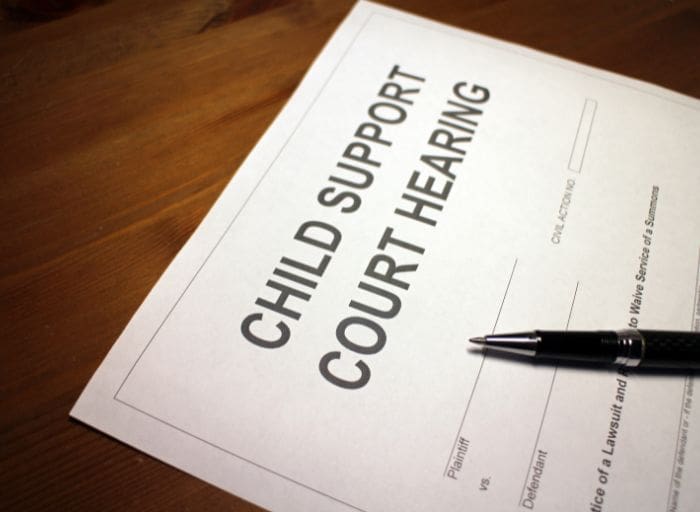Overview of the Texas Child Support System
The Texas Child Support System provides services to help parents establish and enforce child support orders, as well as locate absent parents. Child support is an important issue for parents and families, and the state of Texas takes it seriously. We will provide an overview of the Texas Child Support Program, including how to apply for services, what to expect during the process, and frequently asked questions.

What is the Texas Child Support System?
The Texas Child Support System is a state-operated program that provides services to parents and families to help establish and enforce child support orders. The program’s goal is to ensure that children receive the financial support they need to thrive.
Who is eligible for services?
Parents, guardians, and caretakers who have legal custody of a child and need help establishing or enforcing a child support order can apply for services. Additionally, parents who are owed child support and need help collecting payments can also apply.
What services does the program provide?
The Texas Child Support System provides a range of services, including:
Establishing paternity
Establishing child support orders
Enforcing child support orders
Modifying child support orders
Collecting and distributing child support payments
Locating absent parents
How is child support calculated in Texas?
In Texas, child support is calculated based on a percentage of the non-custodial parent’s net resources. The percentage varies depending on the number of children involved in the case. For example, if the non-custodial parent has one child, they will be required to pay 20% of their net resources in child support. If they have two children, the percentage increases to 25%, and so on. Net resources are calculated by subtracting certain deductions from the non-custodial parent’s gross income. This includes taxes, social security contributions, and medical insurance premiums.
Applying for Child Support Services
How do I apply for child support services?
You can apply for child support services in Texas by completing an application online. Visit the Texas Child Support website or by visit a local child support office to obtain a paper application. You can also call the Child Support Division’s Customer Care Center at 1-800-252-8014 for assistance in completing an application.
What information do I need to provide?
To apply for child support services, you will need to provide the following information:
Your name and contact information
The name and contact information of the other parent
Information about your child, including their name, date of birth, and Social Security number
Any existing court orders related to the child, such as custody orders or child support orders
How long does the application process take?
The length of time it takes to process an application for child support services can vary. It depends on the complexity of the case and the volume of applications being processed. Typically, it takes 30-45 days to process an application and begin providing services. However, if there are issues with locating the other parent or establishing paternity, the process can take longer.
What happens after I submit my application?
Once you submit your application, the Child Support Division will review it to determine if you are eligible for services. If you are eligible, a case will be opened, and a caseworker will be assigned to your case. The caseworker will work with you to establish paternity, establish a child support order, and enforce the order if necessary. You will also be provided with information about the services available to you. You will also be provided with the steps you can take to obtain child support for your child.

Establishing and Enforcing Child Support Orders
What is a child support order?
A child support order is a legal document. It establishes the amount of child support a non-custodial parent is required to pay to the custodial parent or guardian. It is typically issued by a court or administrative agency and outlines the terms of the child support arrangement.
How is a child support order established?
A child support order can be established in several ways. In Texas, it can be established by agreement between the parents, through an administrative hearing, or by court order. If the parents agree on the terms of the child support order, they can submit their agreement to the court or administrative agency for approval. If an agreement cannot be reached, a hearing may be scheduled. Then, the parties can present evidence to establish the appropriate amount of child support.
What happens if the other parent doesn’t pay?
If the other parent does not pay the child support as ordered, the custodial parent or guardian can take legal action to enforce the order. This can include filing a motion for enforcement. That can result in the court or administrative agency taking action to collect the past-due child support. Garnishing wages or seizing assets is an option. Additionally, the non-paying parent may be subject to other penalties. Examples include fines, suspension of their driver’s license or professional license, or even jail time in extreme cases.
What enforcement options are available?
There are several enforcement options available to custodial parents or guardians who are not receiving child support payments as ordered. These include:
Wage withholding: the non-custodial parent’s employer is required to withhold the child support amount from their paycheck. They can send it directly to the state disbursement unit for distribution to the custodial parent or guardian.
Asset seizure: the state can seize the non-custodial parent’s assets. This includes bank accounts or property, to pay past-due child support.
License suspension: the state can suspend the non-custodial parent’s driver’s license, professional license, or other licenses until the child support obligation is satisfied.
Contempt proceedings: the court can find the non-custodial parent in contempt of court for failing to pay child support as ordered. That can result in fines or even jail time in extreme cases.
Locating Absent Parents
How does the Texas Child Support Program locate absent parents?
The Texas Child Support Program has access to several resources and databases that can help locate absent parents. These resources include state and federal databases, as well as credit reporting agencies, employment records, and other sources of information. The program also works with other state and federal agencies, such as the Texas Workforce Commission and the Internal Revenue Service, to help locate absent parents.
What information do I need to provide to help locate the other parent?
To help locate the other parent, you should provide as much information as possible about them, including their full name, Social Security number, date of birth, last known address, phone number, and any employment information. Any information about the other parent’s family or friends that may be able to help locate them can also be useful.
How long does it take to locate an absent parent?
The length of time it takes to locate an absent parent can vary depending on the complexity of the case and the availability of information. In some cases, the other parent may be located quickly, while in other cases, it may take several weeks or even months to locate them.
What happens once the absent parent is located?
Once the absent parent is located, the Child Support Program will take steps to establish paternity (if necessary) and to establish a child support order. The absent parent will be served with notice of the proceedings and will have the opportunity to participate in the process. If the absent parent fails to participate or comply with the child support order, the program will take enforcement action to ensure that child support payments are made. This may include wage withholding, asset seizure, or other legal remedies.
Frequently Asked Questions
What if the other parent lives in another state?
If the other parent lives in another state, the Texas Child Support Program can work with the other state’s child support agency to establish and enforce a child support order. This is done through the Uniform Interstate Family Support Act (UIFSA), which provides a uniform set of rules and procedures for establishing and enforcing child support orders across state lines.
Can child support orders be modified?
Yes, child support orders can be modified if there is a significant change in circumstances, such as a change in income, a change in the child’s needs, or a change in the custody arrangement. To modify a child support order, either parent can file a motion to modify with the court or administrative agency that issued the original order. The court or agency will review the case and make a decision based on the evidence presented.
Can the amount of child support be changed if the other parent’s income changes?
Yes, the amount of child support can be changed if the other parent’s income changes. If the other parent’s income increases or decreases significantly, either parent can file a motion to modify the child support order to reflect the change in income. The court or administrative agency will review the case and make a decision based on the evidence presented.
What happens if I can’t pay child support?
If you can’t pay child support, it is important to contact the Texas Child Support Program as soon as possible to discuss your options. Failure to pay child support can result in enforcement action, such as wage withholding, asset seizure, or even jail time in extreme cases. However, if you are unable to pay due to a change in circumstances, such as a job loss or medical emergency, the program may be able to help you modify the child support order or establish a payment plan that works for your situation.
Conclusion
In conclusion, understanding the Texas child support system is crucial for parents who want to provide the best for their children. Parents can meet their children’s financial needs by calculating, modifying, and enforcing child support payments.
The Texas child support system is complex, but with the information provided in this article, you now have everything you need to know to navigate the system successfully. Remember, always seek legal advice if you have any questions or concerns about child support in Texas. With this knowledge, you can take the necessary steps to provide for your children and ensure their future well-being.
Everything you need to know about becoming a foster parent in Texas
